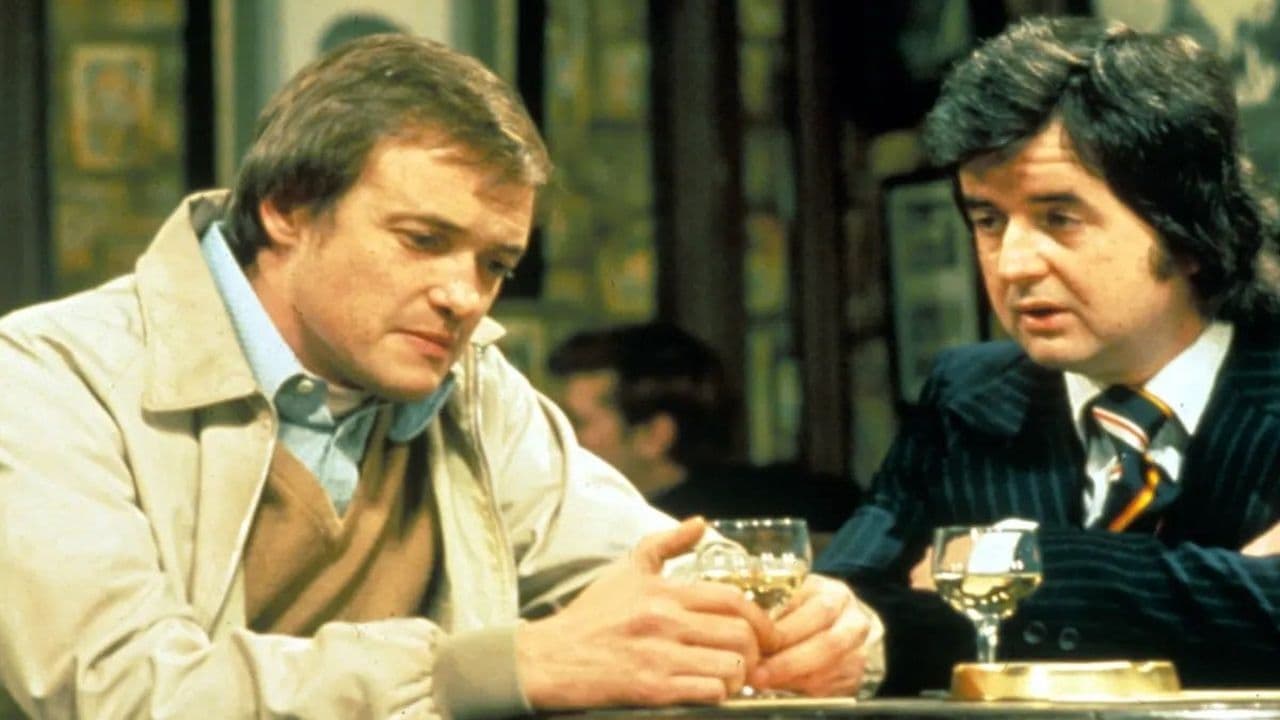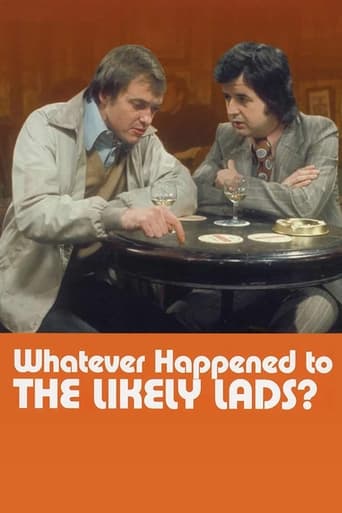EssenceStory
Well Deserved Praise
SincereFinest
disgusting, overrated, pointless
PiraBit
if their story seems completely bonkers, almost like a feverish work of fiction, you ain't heard nothing yet.
Yash Wade
Close shines in drama with strong language, adult themes.
marktayloruk
I mean that. Every episode a gem. What a pity they didn't carry on or that Bolam was such a so and so. Had idea for future - Bob becomes ardent Thatcherite but loses job as result of government cutbacks. Or 80s sequel.with Terry's nephew Wayne and Thelma's nephew Dean.
glenn-aylett
Coming from the North East, I have a natural affinity with this sitcom, but the fact is wherever you come from, the comedy and acting were brilliant. Basically Whatever takes over where the Likely Lads left off, Terry has spent five years in the army and has returned to no job and a Newcastle he barely recognises, while his best friend Terry has done well in the construction industry, is getting married and has joined the middle class ( winter sports in Austria, don't you know).While the original series has dated badly and most of the episodes have been lost, the seventies sequel exists in its entirety and is still hilarious 39 years later. I can't think of a single bad episode as all of them are hilarious and particularly good ones are where Bob accidentally bumps into Terry on a train to Newcastle( Strangers on a Train), The Great Race where they take part in a bike ride to Berwick and cheat and Guess Who's Coming to Dinner, where Terry shows up a snobbish schoolfriend at a dinner party and shows his usual lack of tact( to a Chelsea fan, it's not only Chelsea I hate, it's all London clubs).Because the humour is timeless, showing up the good old British class system, Whatever Happened to the Likely Lads is still worth getting on DVD. Special mention must be made as well to Brigit Forsyth, who plays Bob's prudish and social climbing wife, and Sheila Fearn, as Terry's sister Audrey, who is married to a Terry like figure who spends all his time in a drunken sleep. All in all a classic that is still well loved by people of a certain age from the North East.The 1974 Christmas special was shown on BBC Four on Christmas Day and this nicely ends the story of Bob and Terry. Bob as ever is the henpecked middle class wannabe, still living on the Elm Lodge housing estate, but Terry has been absent for several months until it is revealed he has been learning to drive and wants to be a long distance lorry driver as he can pick up German female hitchikers. In reality he gets a job as a forklift driver, gets sacked after stealing it to transport Bob home as he is over the limit( the most amusing part of the show) and ends up as a taxi driver, where more japes occur as Bob steals the taxi as he has hidden an ex girlfriend in the back and wants to avoid Thelma.A really funny way to end the 1973-74 revival that won a BAFTA the following year and inspired a decent film spin off that is frequently shown at holiday time.
jc-osms
UK TV is in forever love with repeats of "classic comedies" to the extent that on Christmas Day, the BBC found room on the schedules for an ancient episode of "Dad's Army" and gave whole themed evenings to the likes of Ronnie Corbett and "The Good Life", all of which are as about as funny as a hip-transplant. But tucked away on Channel 5 was the Christmas Special from 1974 of the best situation comedy ever to grace the BBC, the superb "Whatever Happened To The Likely Lads", starring Rodney Bewes and James Bolam, written by genre-masters Dick Clement & Ian La Frenais ("Porridge", "Auf Weiderschien Pet").While this Christmas edition is exceptionally funny and what actually prompted me to post this, I well remember that the standard of writing and acting was almost as strong spread over the two or three series they hung around for.Unlike so many of the other so-called classic sit-coms, some of which I've mentioned above, the eponymous "Likely Lads" are wholly grounded in real-life, dealing with everyday situations, talking in everyday language. Thus there's no need to insert the cartoony outrageous characters so beloved of the Perry/Croft or Esmond and Larbey teams. These were two blokes that you could relate to who could be sat just a few seats up from you in the pub or at the football. The humour is less about the situation than the priceless dialogue, so sharp, barely a word wasted.There's no artificiality in the setting, very obviously a run-down, depressed Newcastle or in the accents they employ. More than this though, they represent the working-class everyman muddling through life, dealing with the mundane, occasionally falling out with one another but being mates, always falling back in again.The acting is superb, Bewes never better as the middle-class, socially upward aspirant Bob, Bolam in the only role in which I can watch him, as the down-at-heel feckless Terry and Brigit Forsyth a perfect foil for both as Bob's hoity-toity wife who comes between them.But it really is more about the writing and time after time Clement and LaFrenais showed a winning empathy with character and the ability to get laughs out of the depiction of ordinary situations. "Porridge" and "Auf Wiederschien" are great too but this is their finest creation and in this Christmas episode, very possibly their best ever hour. Great, nostalgic theme-tune too, co-written by LaFrenais - a record of it even made the lower reaches of the pop-charts at the time
Kirstymania
I gave it 9 out of 10 because i've enjoyed "Men Behaving Badly" a lot more in study for my media studies exam next month. I like the way Terry is always undermining the 1970s ideas of the 'modern man' He is backward looking, disinterested in social climbing, success, buying a brand new house and is labelled a 'knocker' by his sister Audrey, who exemplifies the ideological position of the era. The women in the early 70s is stereotypically portrayed as the domestic housewife figure who is weaker than the male society. The comedic representation of Bob and Terry challenges this ideology by exposing an underlying character which is boyish, immature, sex-minded qualities and this produces the comic moments

